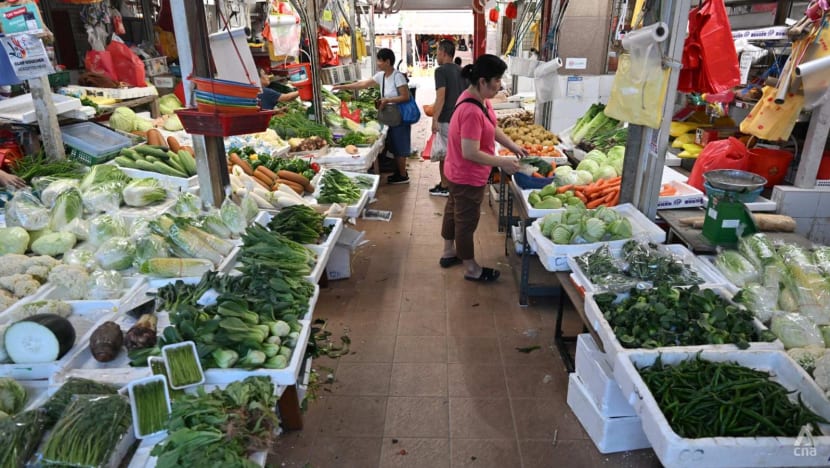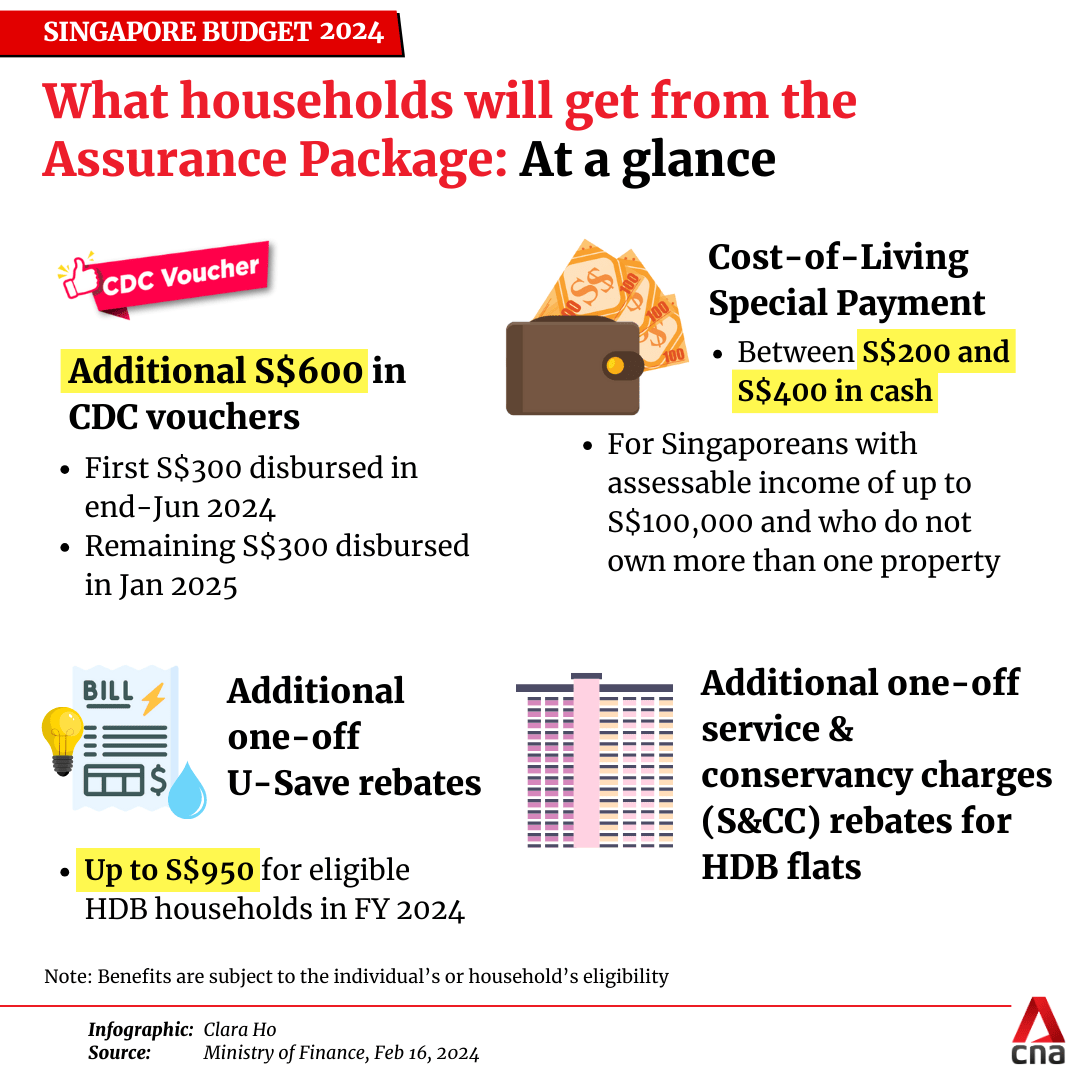Singapore’s core inflation falls to 3.1% in January on smaller food and services price hikes
Core inflation is, however, expected to pick up in February, reflecting the effects of Chinese New Year spending.

A vegetable stall at a wet market in Toa Payoh. (File photo: CNA/Jeremy Long)

This audio is generated by an AI tool.
SINGAPORE: Singapore’s core inflation in January fell slightly to 3.1 per cent year-on-year, driven by smaller price increases in food and services.
The January figure is lower than the 3.3 per cent in December.
However, core inflation is expected to pick up in February, reflecting the effects of Chinese New Year spending.
“Thereafter, core inflation should resume a gradual moderating trend over the rest of the year as import cost pressures continue to decline and tightness in the domestic labour market eases,” the Monetary Authority of Singapore (MAS) and the Ministry of Trade and Industry (MTI) said on Friday (Feb 23).
On a month-on-month basis, core inflation rose by 0.6 per cent, due in part to the rise in Goods and Services Tax (GST) by 1 percentage point to 9 per cent in January.
Core inflation, which excludes accommodation and private transport costs, has hovered around 3.2 per cent and 3.3 per cent over the last three months, in line with expectations of a gradual easing.
After logging a 14-year high of 5.5 per cent last January and February, official data showed that core inflation averaged 4.2 per cent for the whole of 2023.
The headline consumer price index, or overall inflation, came in at 2.9 per cent in January compared with 3.7 per cent in December, led by lower accommodation and private transportation costs.
Accommodation inflation fell from 4.1 per cent in December to 2.1 per cent in January as a larger amount of Service & Conservancy Charges (S&CC) rebate was disbursed last month.
Private transport inflation fell from 5 per cent in December to 2.9 per cent in January due to a slower rate of increase in car prices, which in turn reflected lower COE premiums.
OTHER SECTORS
Electricity and gas inflation rose from 1.3 per cent to 5.3 per cent on account of larger increases in electricity and gas tariffs.
Food inflation fell from 3.7 per cent in December to 3.3 per cent in January as the prices of cooked and non-cooked food rose at a more gradual pace.
Services inflation eased from 3.9 per cent to 3.3 per cent on the back of a smaller increase in holiday expenses and a larger decline in airfares.
“Inflation for services associated with overseas leisure travel should continue moderating over the course of this year as supply conditions in international hospitality industries improve,” said MAS and MTI.
“These factors, alongside the stronger S$ trade-weighted exchange rate, should continue to temper Singapore’s imported inflation in the quarters ahead.”
Although increases in unit labour costs have slowed in tandem with the cooling labour market, authorities noted that businesses are, nonetheless, still likely to continue passing higher labour and other business costs to consumer prices at a gradual pace.
MAS and MTI maintained their projection for 2024 as a whole, expecting both headline and core inflation to average 2.5 per cent to 3.5 per cent.
Excluding the transitory effects of the GST increase, headline and core inflation are expected to come in at 1.5 per cent to 2.5 per cent.
“Upside risks to inflation remain, including from fresh shocks to global energy and shipping costs due to geopolitical conflicts, higher food commodity prices from adverse weather events, as well as more persistent-than-expected tightness in the domestic labour market,” said MAS and MTI.
“Conversely, an unexpected weakening in the global economy could induce a faster easing of cost and price pressures.”
To help with cost-of-living concerns, Deputy Prime Minister Lawrence Wong announced during his Budget speech earlier this month that Singaporeans will get payouts such as an additional S$600 in CDC vouchers.
The government will also top up the fund for GST vouchers by S$6 billion (US$4.5 billion), to continue defraying GST expenses for lower- and middle-income households.
Although inflation started to moderate in 2023, economic growth slowed and real incomes declined as a result, noted Mr Wong, who is also Finance Minister.
He added that while the government expects the situation to improve in 2024, it is doing more to support households as uncertainties remain in the economic outlook.















